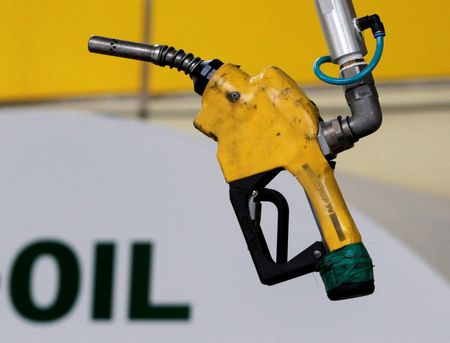 1
1 1
1

By Sonali Paul
MELBOURNE (Reuters) – Oil prices clawed back some losses on Thursday after tumbling more than 5% to a three-week low in the previous session after consuming nations announced a huge release of oil from emergency reserves to offset supply lost from Russia.
Brent crude futures climbed $1.32, or 1.3%, to $102.39 a barrel at 0119 GMT, while U.S. West Texas Intermediate (WTI) crude futures rose $1.18, or 1.2%, to $97.41 a barrel.
International Energy Agency member countries agreed to release 60 million barrels on top of a 180 million-barrel release announced by the United States last week to help drive down prices in a tight market following Russia’s invasion of Ukraine.
Russia calls its actions in Ukraine a “special operation” to disarm its western neighbour.
Analysts said even with the emergency oil stocks release, supply remained tight.
“In addition to the enormous global reserves release, demand destruction and recession are currently the only price-lowering mechanism in a world devoid of inventory buffers,” said Stephen Innes, managing director of SPI Asset Management.
National Australia Bank analyst Baden Moore said the latest release plus the IEA’s coordinated release announced on March 1 equates to 1 million barrels per day in extra supply from May to the end of 2022, which would cap prices in the near-term.
“The additional supply reduces the near-term upside risk to the market and likely avoids the need for refinery cuts in the near term,” Moore said in a note, before adding a note of caution, “but the need to restock reserves, expected in 2023, adds to the forward market tightness where the fundamental supply outlook remains unchanged, tilting the price risk to the upside.”
Stalled indirect talks between Iran and the United States on reviving a 2015 agreement on Tehran’s nuclear program have further delayed the potential for sanctions on Iranian oil to be lifted, keeping the market tight.
Political decisions are needed in Tehran and Washington to overcome remaining issues, negotiators say.
(Reporting by Sonali Paul; Editing by Simon Cameron-Moore)